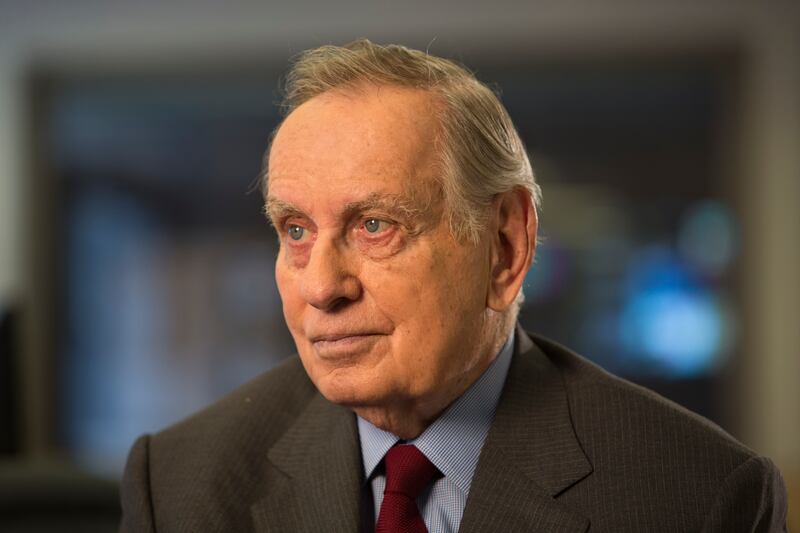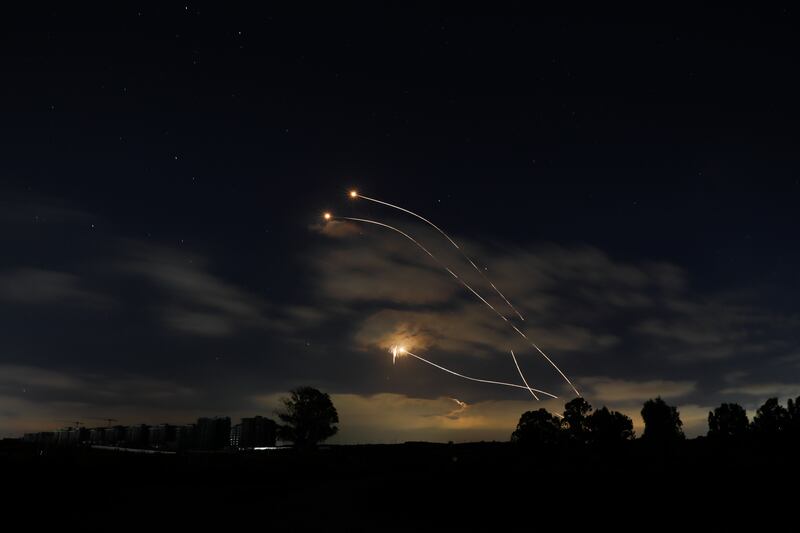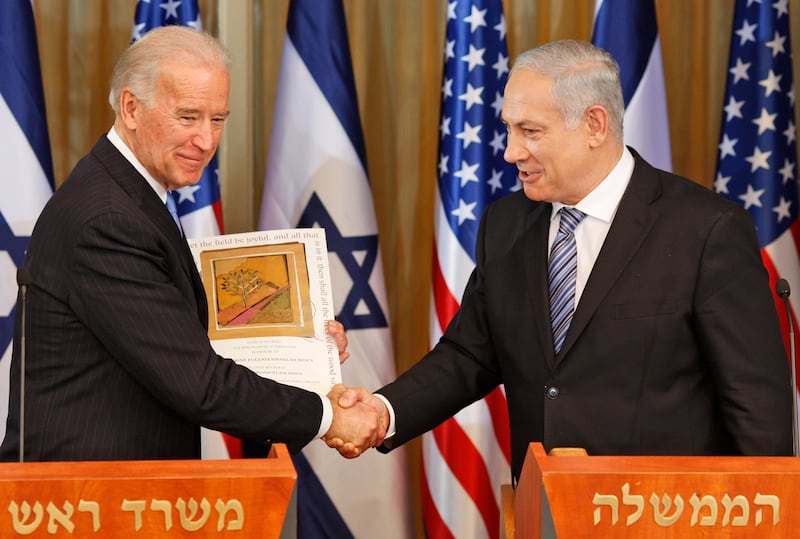A tenuous cease-fire between Israel and Hamas has stopped missiles from painting the sky at night, but all sides know the measure is temporary.
“If Hamas breaks the calm and attacks Israel, our response will be very powerful,” Israeli Prime Minister Benjamin Netanyahu told reporters on Tuesday.
The recent attacks lasted more than 10 days, leaving dozens dead and hundreds more injured. Those in the Gaza Strip received the worst of it, as the region doesn’t have the sophisticated defense system Israel employs.
Meanwhile, antisemitic violence and harassment has increased around the world. Jews have been beaten in broad daylight. Vandals have defaced synagogues with hate symbols.
My colleague Mya Jaradat has powerfully written about her experience as an American Jew married to a Palestinian, and she has argued that we shouldn’t forget the Palestinian Christians caught up in the conflict. Another colleague, Bethany Mandel, reminds readers that, no matter your stance on Israel, antisemitism is vile.
To add to the conversation, I spoke with Zalman Shoval, the former Israeli ambassador to the United States. He worked with both the George H.W. Bush and Bill Clinton administrations, and previously held a parliamentary seat in the Knesset. He played a major role between Washington and Jerusalem during the first Gulf War and is devoted to Israel’s independence and role as a global citizen.
He so far has no gripes about the Biden administration, although that may change, he adds. Pressure from within the White House to do more to support Palestine is growing, and he is disappointed in certain progressive members of Congress who openly criticize Israel without fully understanding its history.
Even still, in the shadow of violence, his optimism is palpable. “The Jewish population in Israel is steadfast,” he tells me. “We are very confident of our future.”

This interview has been edited for length and clarity.
Deseret News: How would you describe your emotions given the most recent attacks?
Zalman Shoval: There are two ways of looking at it. One way is the political or military aspect. The other one, of course, is the personal one. It’s not pleasant to be awakened every night with air raid sirens blaring and having to run to the center and so forth. And that’s still, I would say, a luxury situation because in the townships and kibbutzim in the south of the country, they have it all day and all night long. So, for them it’s really hard.
But the widest scope is that here we were, without any provocation from our side, attacked by Hamas with hundreds and hundreds of missiles. Most of those missiles, by the way, are either manufactured according to Iranian technology or actually supplied by Iran. We are very lucky that we have the famous Iron Dome, which has been effective to the extent of about 90%. But still, a lot of damage has been done.
It’s very important how this is going to end because if Hamas and its Iranian friends won’t be put before a situation where they have to disarm or give some very, very serious guarantees that they won’t start something like that again, then we’ll just have another round in a few years or maybe in a few months.
The Biden administration so far has supported our right to defend ourselves. But there’s pressure also in the Biden’s administration, and there could be pressure to force us to stop our defensive actions before we have achieved the (goals) which we should achieve. So we don’t know how this is going to play to out, but as I said, so far the Biden administration has been OK from our point of view.
DN: What’s the best resolution?
ZS: Sen. Mitch McConnell on TV said something which is very wise and correct: He said if Hamas will have its weapons taken away, there will be peace. If Israel will have its arms taken from it, there won’t be an Israel.
The Hamas regime is a dictatorial, extremist regime. They have an ideology, which they don’t even disguise, which says they have to destroy the state of the Jews, the state of Israel, and install an Islamic caliphate. Now, the only means by which this is being prevented is because Israel fortunately has the ability and the will to defend itself. And we are doing that.
Now, outsiders who, you know, have the best intentions but not always the best knowledge, say, “OK, let’s negotiate with them,” and things like that. Of course, one could negotiate for the sake of appearances, and Israel would welcome that, but that wouldn’t change the situation one bit. Because the whole raison d’etre, as the French expression goes, for Hamas is to be an extremist Muslim Brotherhood organization with ideological aims, and its major aim is the destruction of the Jewish state. What is there to negotiate?
We could find breaks in between measures of temporary arrangements, but they will always be temporary, unless the situation is found under international pressure. Hopefully, perhaps one day, let the civilian population there — who are really the main victims of this whole situation because they’re innocent people that are being sacrifice by Hamas for their political and ideological aims — if a way could be found to throw the Hamas out of the Gaza Strip, and perhaps install a different kind of Palestinian leadership which would agree to come to an accommodation with us, then we have no other interest.
You may remember that Israel withdrew from the Gaza Strip in the early 1990s because Israel at that time thought that by withdrawing from the Gaza Strip it would create a situation of, if not actual peace, at least some calm, but that didn’t happen. The moment Hamas took over by force — they did have an election in which they got a big vote — but they threw out all the other Palestinian parties and established this sort of authoritarian regime in Gaza, and that’s this story since then.

DN: What else do you believe Western observers misunderstand, and what do you wish they knew?
ZS: I don’t blame them. They are living in a different place. They don’t know these issues from nearby — I’m talking especially about the Europeans now. They just see two sides. They see bloodshed on both sides, and they establish a sort of artificial symmetry, which is not correct because we are the victims of aggression, and the Hamas are the aggressors. And there’s no doubt about this.
So, their contribution, at present, can’t be very effective. If in the future, and right now this is quite hypocritical, if there were a different regime in Gaza, people who actually have the well-being of their own people at heart, then of course the Europeans and the rest of the international community could play a big role. There’s no reason why the Gaza Strip couldn’t become another Singapore instead of terrorizing its neighbors. They could establish a prosperous, successful entity. But right now that is theoretical. The regime in Gaza is a terrorist regime and not a peace-loving regime.
The only thing which I should add — or perhaps I shouldn’t add because it involves domestic American politics which I am not going to make a statement on — but I could say that some American political persons who call themselves progressive have taken up positions against Israel which are not only unjust and unfair, but certainly prove that they are not really interested in seeing the real antecedents and reasons of the conflict in the Middle East between the Jews and the Arabs. They are a minority. I wish they were going to look at things in a more objective way and not be a priori anti-Israel, some of them even being antisemitic, I would say.
DN: Are your family and friends safe right now?
ZS: The family is right here, all of us. Thank God, everybody is safe. Everybody does what I told you at the beginning — running to the shelter when there is an air raid siren. But actually we’re looking forward to a wedding of one of our grandsons. So, you know, life is continuing. The Jewish population in Israel is steadfast, and even though we are under attack, we are very confident of our future. And that’s the way we live.


